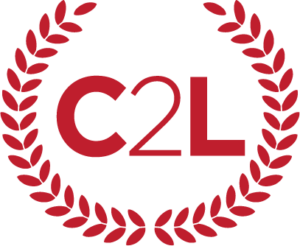Our 19-year-old College Experience senior, David Lieberman accompanied his staff member, Jesse Saperstein to Mercy College on the evening of Monday, February 26, 2018! They both co-delivered a lecture to the students of Professor Eileen Hoffman’s class that focuses on studying the complexities of Autism Spectrum Disorders (ASDs). Most of the students in the class are studying to be special education teachers and learned from two very powerful teachers that night. Sometimes the greatest learning experiences come from listening to individuals who do their best every day to navigate challenges while living with the condition.
David and Jesse shared the stage for about two hours speaking about their individual experiences with having autism. But David surely stole the show and was well received by all the students as well as Professor Hoffman. David has surely come a long way since receiving 20 hours of Applied Behavioral Analysis (ABA) as a very young child. David showed incremental improvements thanks to the intense therapy, support from his parents, and his own tenacity! David also gave the students a rudimentary example of ABA therapy by explaining how his parents used it to help him become acclimated to getting haircuts. It was a sequence of baby steps spread over an extended period of time. The first step involved him being driven by the barbershop, and he was offered a reward if he did not have a tantrum. This progressed to him walking inside the barbershop and eventually sitting on the chair itself. And finally, he allowed the barber to just touch his hair with the scissors. Each minor achievement was met with a reward until he finally allowed a stranger to cut his hair!
The following is a transcript from David’s talk, and please be sure to watch the posted video about David’s time in the College Experience. Some of the footage from David’s talk has been posted on Facebook and has been viewed over 3,300 times and counting! We congratulate David on all of the success he has achieved as a student and are happy for him now that it seems he has launched the beginnings of a a public speaking career, too!
Growing up was kind of challenging. At around thirteen to fifteen months of age my parents were realizing a few things. These are signs of autism. Number One….they were realizing that I was not talking or I wasn’t doing small talk, which means I was not talking to anyone. Number Two…lack of eye contact, which means that I was not looking at someone in the eye. As you know, where she always says to the prosecutor, “Look at me…look at me…look at me!” The third, my parents realized that I had some sensory issues, which means I did not like to be touched. When you grow up as a child you get along with friends and get together once in a while and have what was called back then, “A play date” and that kind of thing. I did not have “interpersonal skills.” I wasn’t doing anything with friends…I wasn’t doing anything right.
So what happened? My parents took me to a developmental pediatrician. The doctor found out that in January of 2002 just as I was turning three-and-a-half years old, I was diagnosed to be on the PDD-NOS system or just basically ASD…the autism spectrum. At a young age, fortunately, I was given tons of services throughout my school district back in Long Island where I grew up. The services that I had received were full-time special ed preschool. The second was speech therapy. And the third, this happened at a very young age, again was 20 hours a week worth of ABA Therapy, which stands for Applied Behavioral Analysis. And this was a positive reinforcement therapy, which actually used a scientific method that helped me learn some of the basic things. Reading, speaking in public like I am doing now, and functioning my life from when I was a kid up until now. This ABA Therapy had the biggest impact. I would call this the turning point as is an expression in American studies. It was the biggest impact on my life and even my ability to function now than I did before.



 What comes after graduation? Many College Experience students, in fact most, choose to remain in Albany. They maintain friendships with their fellow and former graduates, form romantic partnerships, and some get married.
What comes after graduation? Many College Experience students, in fact most, choose to remain in Albany. They maintain friendships with their fellow and former graduates, form romantic partnerships, and some get married.